Can vegans have pets? It’s morally preferable to keep pets as respected companions versus the deadly risks of sending them back into the wild, euthanasia or keeping them in shelters. For these reasons, the consensus is it’s okay for vegans to have pets.
However, there’s a lot more debate surrounding this question. Some people draw a line and think it’s not vegan to keep animals as companions, while others believe that the pet-human relationship can be beneficial for both parties.
In this post, I’ll explore both sides of the argument and attempt to provide a clear answer. I’ll start by looking at our relationship with animals in general and then discuss specific issues like pet food and unwanted domestic animals.
But first, the basics.
What is a pet?
Pets are animals that people keep for companionship and pleasure. Humans have kept them for at least ten thousand years, with evidence suggesting pets existed in Paleolithic times.
Dogs, the most well-known pet, are not only companions but also workers such as therapy dogs, service dogs and police dogs; sports mascots; military mascots; hunting partners and performers in shows like the circus.
Pets provide emotional support and love to those who live alone, act as guardians of infants or the elderly, help people recover from illness or injury after surgery or accidents, provide comfort during wartime and provide a reason to exercise and get out of the house.
Because pets are part of a family, their owners tend to treat them like children. They buy products such as food, toys and clothing; they bring them with them in cars or on vacations; they take out pet insurance policies so that veterinary care is available when needed and put them in pet daycare when owners are away.
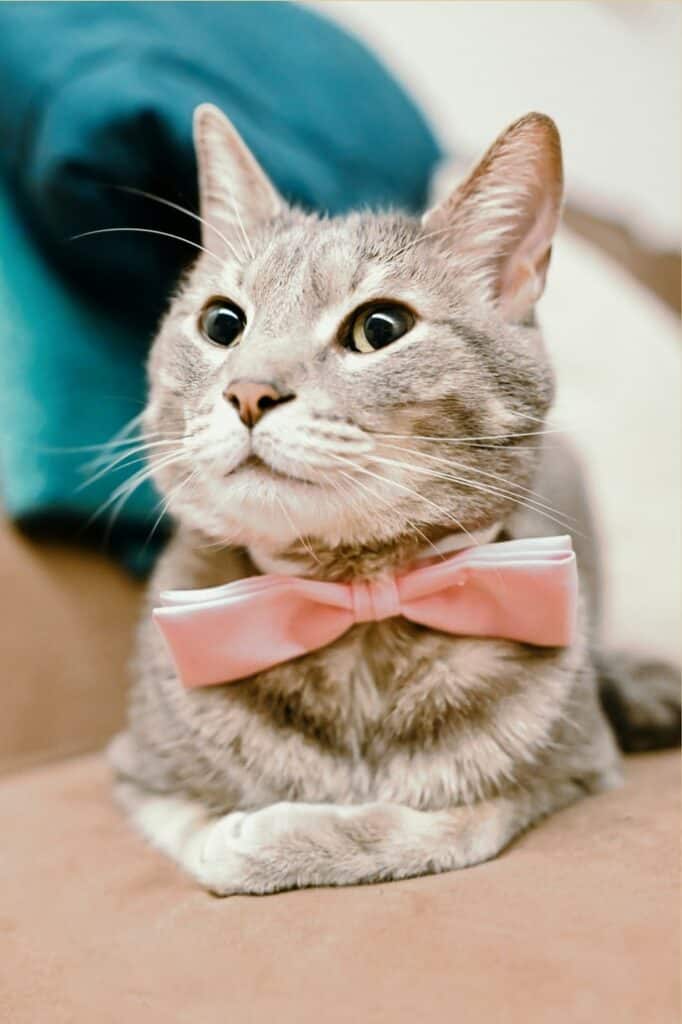
When pets die, their owners may hold funeral ceremonies and build memorials of remembrance to honour them. They also mourn the loss of a beloved pet and sometimes have trouble coping with grief caused by death.
The term “pet” is most often used to describe small animals such as dogs, cats and birds but can also include larger animals like horses, llamas and even fish.
Pet ownership and companionship are words used interchangeably to describe the domestic animal and human relationship — despite having different meanings.
Pet ownership implies that the animal is someone’s property, an asset with a specific purpose, such as working or providing security.
Companionship suggests that both parties enjoy each other’s company and are equals in the relationship.
Even the terminology can create moral tension for vegans. I know I’ve wrestled with the idea of calling myself a dog owner, as I consider myself to be more of a dog parent or pack leader (or at least I like to believe).
At a deeper level, the idea of owning an individual has a dark history embedded in slavery and exploitation. And therein lies the ethical issue with having pets.
Why human and pet relationships can be exploitative
A few issues with pet ownership, even as a companion, have been labelled exploitative in terms of consent, pleasure, abuse, captivity, and abandonment. Let’s look at each one separately.
Consent
A pet that is purchased, sold, and introduced into a setting without permission is technically enslaved, and the nature of this transaction is inhumane.
Pets are also often bred in captivity without consent from the mother and father (or any other animal involved). This creates a situation where animals are enslaved and abused at birth.
Pleasure
It’s no secret that many people derive pleasure from owning pets. From dressing them up in costumes to taking pictures of them to snuggling up on the couch, the pleasure derived from owning pets is physical and mental.

I remember a former colleague telling me that her 2 Shetland Sheepdogs were very independent, and it bothered her. She was hoping to have more affectionate and “needy” dogs. This is an example of our expected return on investment from our companion animals.
Abuse
Many pets are bred in captivity without consent, which means a much higher chance of abuse. Abuse can take many forms, such as beating an animal, neglecting their needs, or not providing proper veterinary care.
I’ve had neighbours who leave their dogs outside overnight, barking and scratching for years on end. I’ve also never seen the dogs walked…ever. I’m sure you can relate.
Captivity
Pets are often kept in cages or small spaces, which can be considered imprisonment. This is especially true for exotic animals like fish and birds, usually held in small tanks and cages.
It can be argued that it is cruel and unfair to keep animals in captivity when they would naturally roam free.
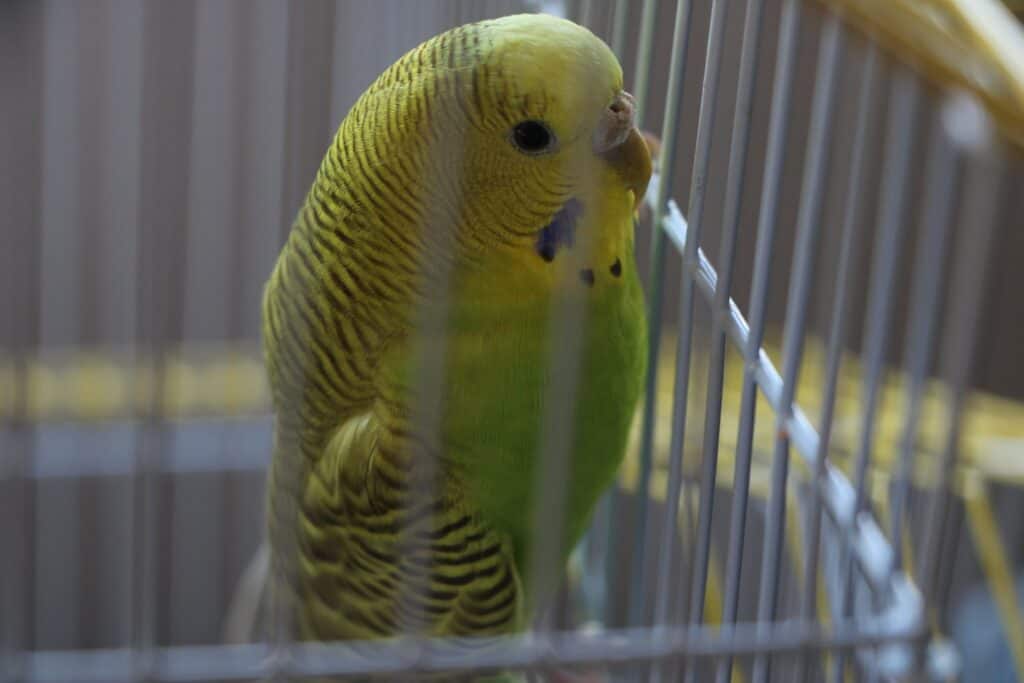
Abandonment
I think we’d all agree that abandoning a child at any stage of their lives is abusive. Yet, this is what we do all the time to our pets.
Many cats and dogs are abandoned in the street, left to fend for themselves — or dumped at shelters only to be later euthanised after isolation and repeated rejection. This is not only unfair but also cruel.
There is no doubt that the relationship between humans and their pets can be viewed as exploitative. It’s also not always a two-way street, where many people believe they are doing more for their pet than vice versa.
Why human and pet relationship isn’t exploitative
Many people consider their pets as family. Let’s face it, some folks, i.e. my wife, treat their pets better than their friends and family. Home-cooked meals, multiple playing sessions a day, sleeping in the bed, unlimited hugs and kisses, you name it.
Pets are living life. So how can anyone argue that this type of relationship is exploitative? Treating pets with love, care and compassion aligns with the vegan ethos.
On top of that, studies show that having a pet increases humans empathy toward animals. Through intimate experiences with pets, many people become vegetarian or vegan, as they’re able to draw parallels with their beloved pets with the farmed animals they previously consumed.
However, the pet industry has made billions of dollars in profit after decades of exploiting humans’ love for animals and desire to have something cute and cuddly around.
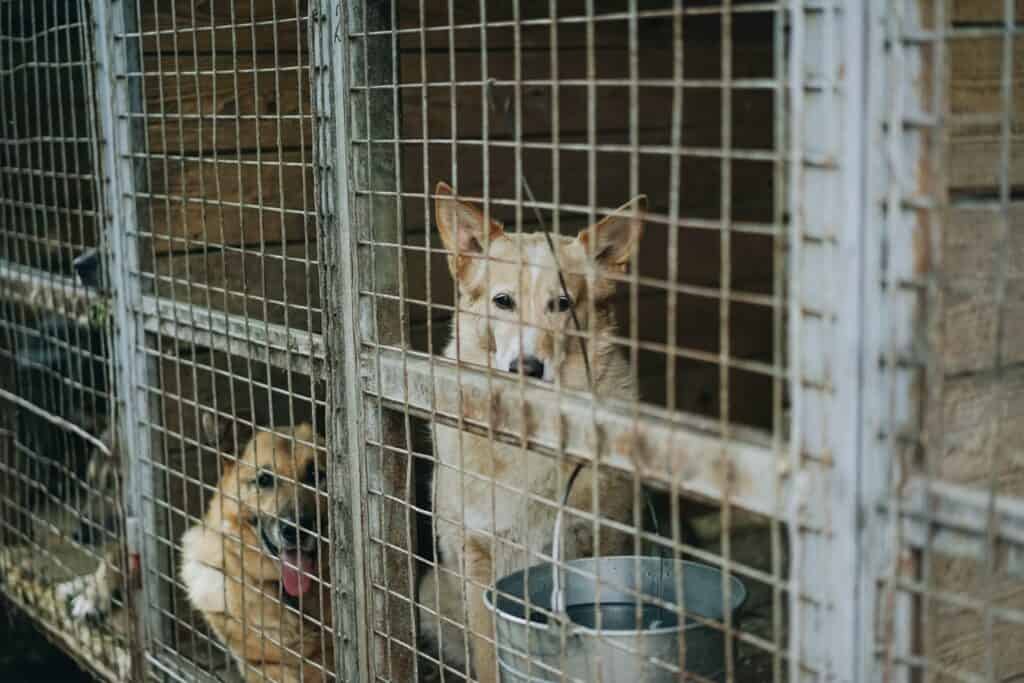
But, I believe that the tide is turning. More and more people realise that animals are not here for our entertainment or use, but rather to be loved and respected.
Beyond that, having a pet sure as hell beats out the alternative options for these animals, which is why vegans can justify keeping pets.
The bleak alternatives to pet ownership
The overabundance of domesticated animals as a result of deliberate breeding, as well as the lack of animals spayed and neutered, have led to an excess of pets — which is fantastic news if you’re seeking a pet, but not so great if you’re concerned about population growth and animal welfare.
With a massive excess of unwanted animals, many vegans believe keeping pets is preferable to euthanising, letting them loose in the wild or keeping them in shelters. Let’s break this down.
Option 1 – putting domesticated pets back in the wild
The first option is to let domestic pets run free in the wild. But while it may be a nice thought, most domestic animals are not equipped to survive in the wild. They lack the skills and instincts necessary to find food and shelter, fend off predators, and navigate unfamiliar terrain.
That said, some pets are better suited to life in the wild than others and can even thrive. For instance, cats and dogs have strong survival instincts, and many have natural scavenging traits that help them find food.
Additionally, breeds like Huskies and Malamutes were bred to withstand harsh conditions, making them more likely to survive if they were stranded in the wilderness. Ultimately, though, the chances of a domestic pet surviving in the wild are slim.
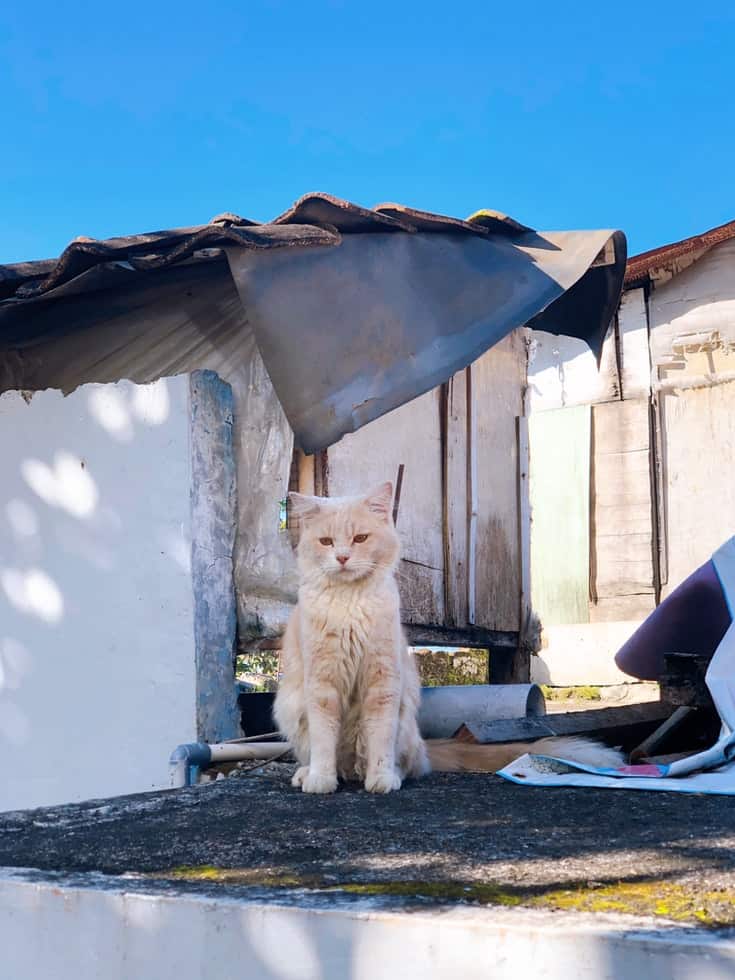
Option 2 – euthanising unwanted pets
The second option is euthanasia — the painful and terrifying death that thousands of animals face every year in shelters when they’re not adopted after a certain period or can’t be rehomed because of behavioural issues. It’s easy to see why this isn’t an attractive option.
Option 3 – keeping animals in shelters
The third option is to keep domesticated animals in shelters, but this also has its drawbacks. Shelters are often overcrowded and underfunded, leading to a high euthanasia rate. What’s more, many animals who end up in shelters have behavioural issues that make them difficult to rehome.
The best option: keeping domesticated pets as companions
So, what’s the solution? The answer is simple — and it’s something that many of us are already doing: keep domestic animals as companions.
This may not be an ideal solution from an animal welfare standpoint, but it’s the best we can do until we figure out how to solve the overpopulation problem.
Now, if there were no longer any orphaned animals, we should open up the conversation about the ethics of pet ownership. I can easily see a system where strict requirements need to be met by prospective owners to ensure the pet’s needs will be met, and they won’t be abandoned.
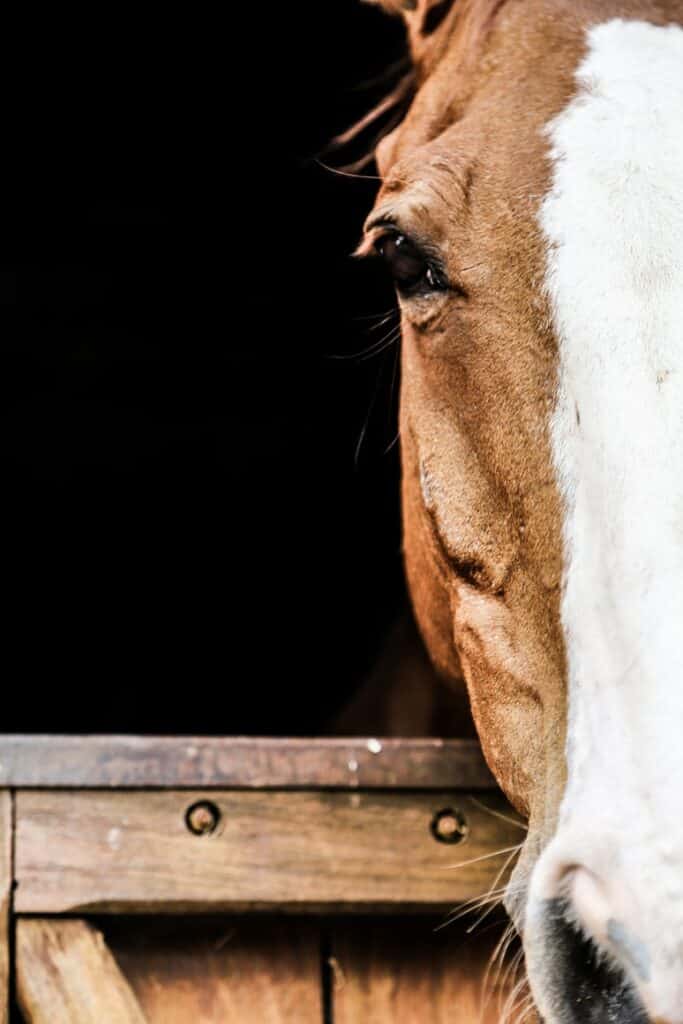
Is it vegan to feed your pets to other animals?
Another consideration on top of many of our minds is what the heck does a vegan feed their pet, especially if they’re an obligatory carnivore? And if you give meat to your pet, can you really be vegan?
The answer to this question isn’t a simple yes or no. As it relates to diet, the definition of veganism excludes all forms of animal exploitation and cruelty. This would include using animals for feed, whether in agriculture, aquaculture or zoos.
But what if you have a pet snake who’s an obligated carnivore?
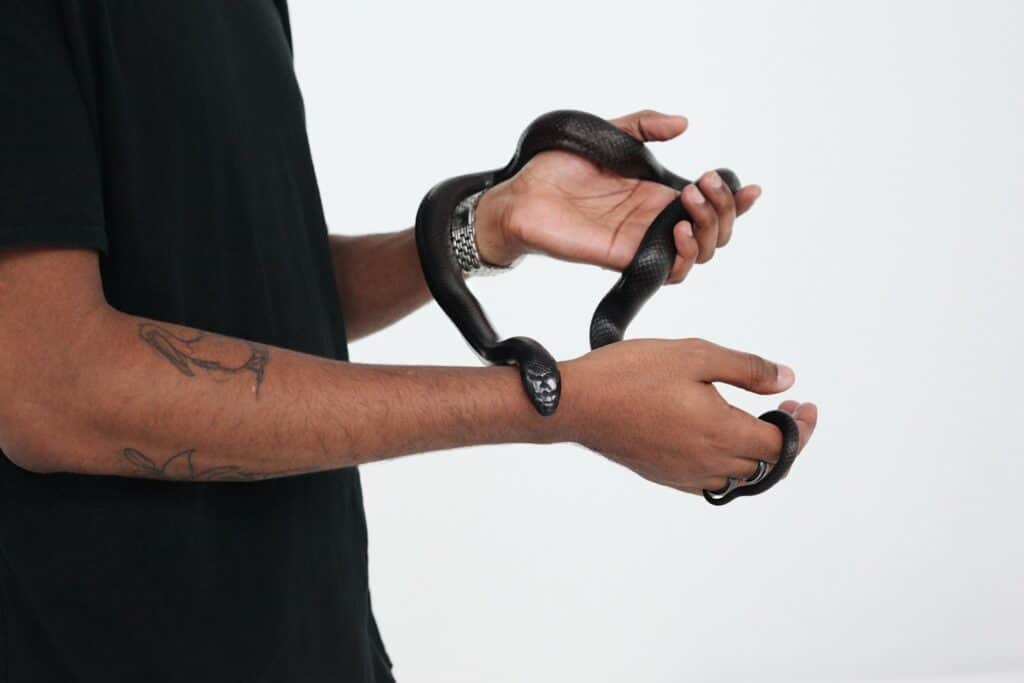
As you can see, it gets complicated. The answer to this very question is the subject of much debate and disagreement within the vegan community. The only thing that’s clear on this topic is that there are no absolutes. But if you do have an obligate carnivore pet, here are some things to consider:
- Try partnering with local restaurants to see if you can use their leftover meat.
- You can cook for your pet, making sure to include plenty of protein and essential nutrients in their diet. This might be more challenging, but it’s doable.
- It’s a stretch, but you could look into sourcing accidental meat from roadkill. Apparently some chefs and animal activists believe this is the most ethical meat.
Ultimately, the decision on what to feed your pet is up to you. There are no black or white answers in this context, only what works best for you and your animal companion.
It’s probably evident at this point, but if you don’t have a pet yet, think about adopting an animal that isn’t an obligate carnivore to avoid these highly compromised situations.
Can vegans keep pets? The verdict
So, can vegans have pets? The answer is yes – but it’s not as simple as just adopting any animal you want.
There are several things to consider, such as what kind of pet would be best suited for your lifestyle and whether or not you’re comfortable with the idea of feeding them an animal-based diet.
And the most important aspect of choosing an animal companion? Make sure that you’re ready and willing to commit to caring for them throughout their entire lives, no matter what happens. It’s not easy being responsible for another living creature, but it is definitely worth it!
What do you think – are vegans who keep pets doing anything wrong? Let me know in the comments below!


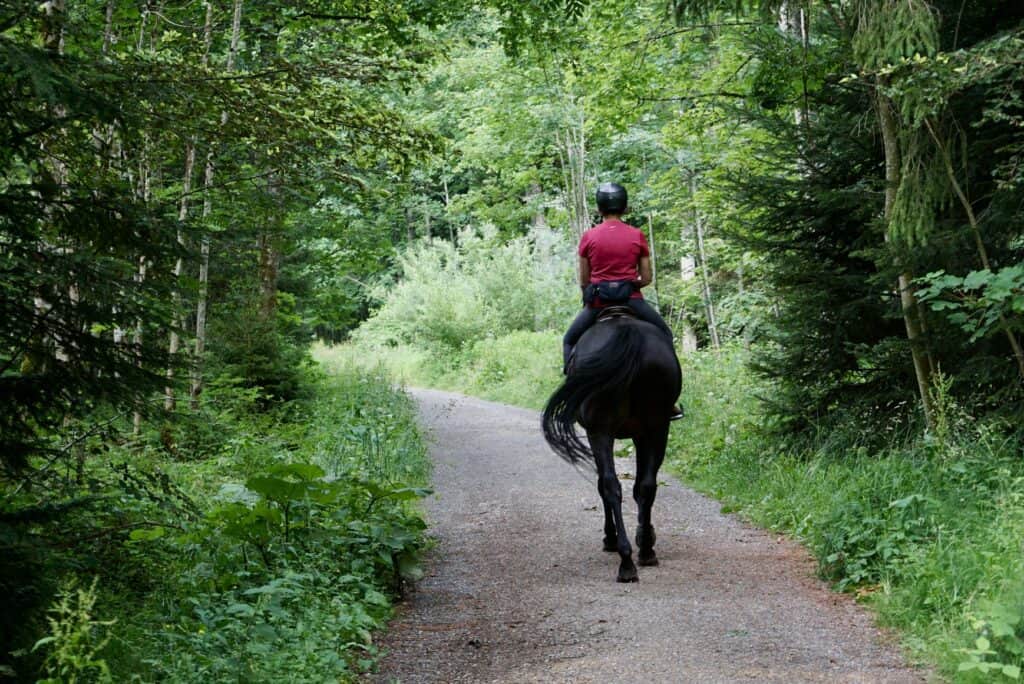
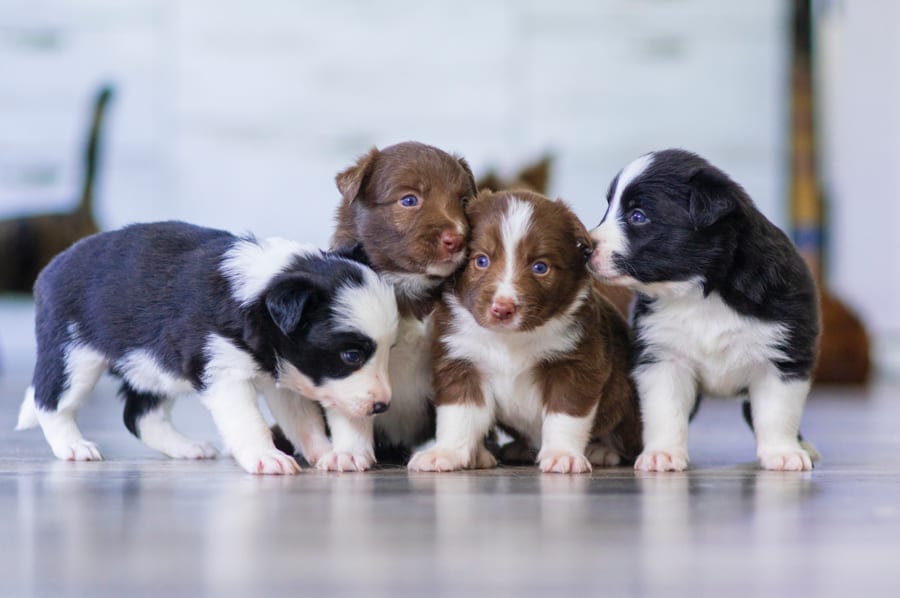
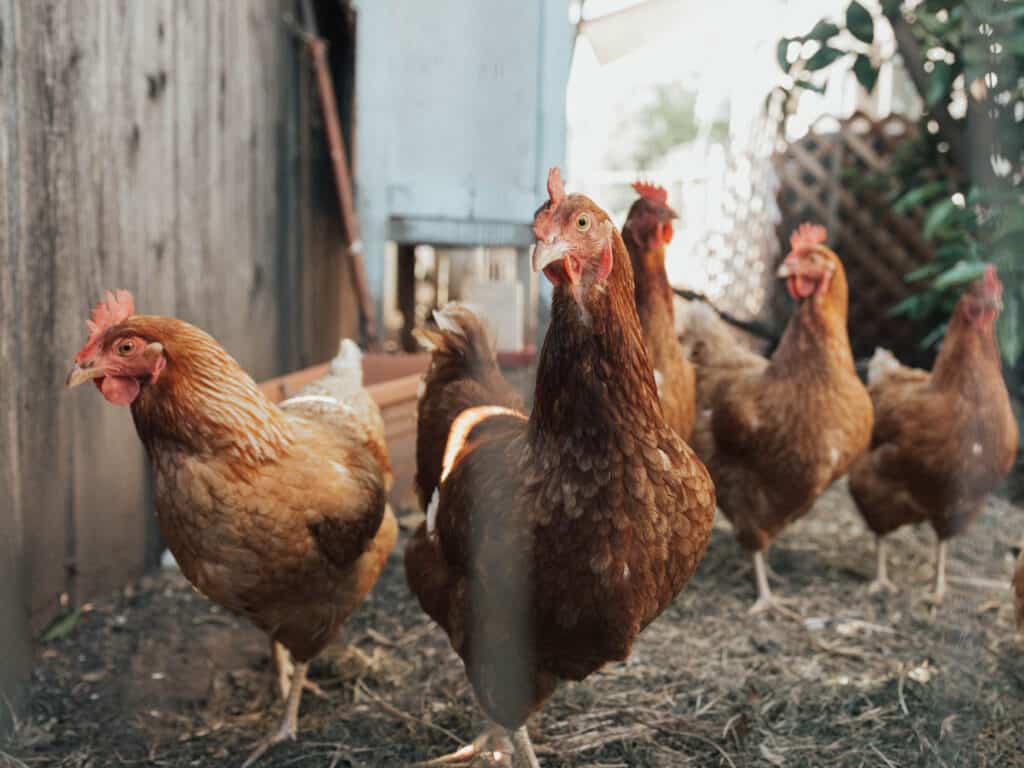
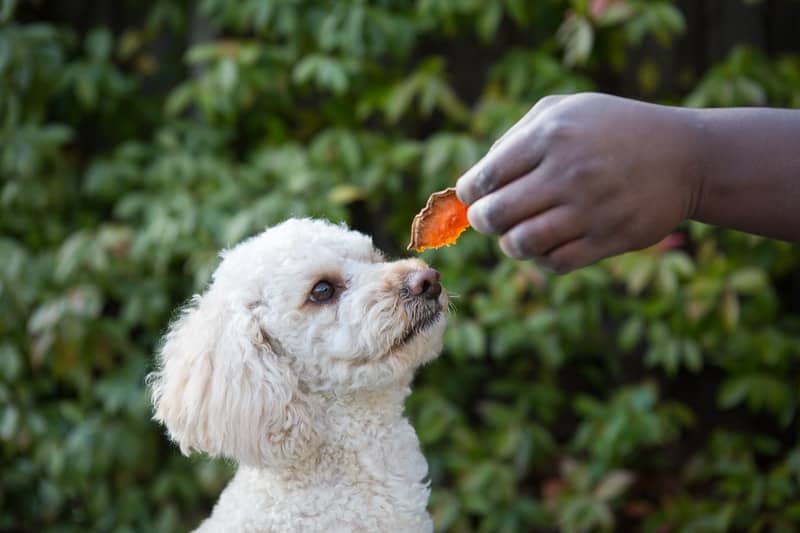
The problem with the pet companionship framework is believing that treating a pet as a human child is a fair treatment for the pet. Pets are not humans and their needs and satisfactions are characteristic of their own kind. Just do reverse thinking and consider if a wolf or a wild cat trying to do their best to take care of a child would be able to provide the proper needs.
This article is one view that imprisoning tying up and feeding animals to animals is ok if one gains companionship. I am saddened by leather tied dogs and cats bred to have thick fur.
It is not the view of all who are vegan, I have found for many the realisation the family pet has feelings and consciousness is a motivation for them to become vegan. I am moved by this to live and let live for all I hope that pet breeding is not normalised in future societies.
Owning a pet is animal exploitation. You steal it from his family, you cage it, you collar it, you sterilize it, you subjugate it, all for your own comfort. The absolute epitome of exploitation. If this is what you think veganism is I highly recommend you stop pretending you’re vegan.
I have never read such circulatory rubbish for a long time. The answer must surely be to prevent further breeding of “pets” and let nature resolve the problem over the next 20 years or so (much shorter for some “pets”). As for “pets” helping “partners “ to relate to animals better, unfortunately I know too many “pet partners “ who can’t relate to their own kind, ie humans.
Well, I am a vegan and I have 2 beautiful sweet dogs. For me they are more than just animals, for me they are my companions. Just their presence make my life better and easier. I feel so relaxed with them, because I know that they love me with an unconditional love. I have been through a lot, and they were beside me all the time. I just.. Feel their support. And I think a person-pet relationship is about a tandem. You give them good conditions for living, they give you love, support and even healing effect. They can support you in not good emotional state just *being there*. I appreciate dogs so much. My favorite creatures ever.
Greetings,I always adopt abandoned Animals from sanctuaries or directly from the street,never buy them,as I disagree with any form of slave-market & I prefer old & sick/handicapped Animals to adopt-those with least chance to survive-with least interest from humans,i must hide,i am a Vegan,in the shelter,because they would deny adoption,as it is known,most Vegans will not buy Royal Canine or so,then I of course feed them Amì Dog or Amì Cat & many humans in my surroundings r demonizing me for feeding carnivores Amì Pet Food,even it is not only Vegan,it is Vegan/synthetic food with synthetic taurine & other essential chemicals,they normally take from meat,these replacements were made in lab especially to be digested by a target digestive system,we use many other synthetic things in our lives,this is the right way of civilization,use technologies to avoid cruelty,Data also feeds Spot synthetic food(i would be very happy having a replicator too).I do not have access to lab-grown meat & I find a dead Animal corpse outside about twice a year & so full of worms,Cat would sure not appreciate this,humans including my family hates me & feed the Cat ordinary food behind my back,but She prefers Amì Cat,if something other is dropped beside by my Klingon family members,the Cat bites 1ce into it & lets it rot & continue enjoying Amì Cat.
I also have in my last will,i wish my remains will be recycled to food for carnivores & I would wish,others would do so,so we would have ethical meat from naturally dead Animals(including humans) to feed Cats,Dogs & Snakes by a way,which is both ethical & not controversial.In some countries offices r taking away Animals from Vegan families fed by Amì,Benevo,or other ethical food,just for the principle,we r feeding obligate carnivores by plants & they intently omit,these foods r not only from plants,but with lab-made replacements of essential aminoacids & vitamins normally taken from meat,so they r cheating on us,because they could not defeat us(Vegans) without cheating.
Live long & prosper.
First, this is a long post, so I apologize in advance.
Second, I should point out that my wife of 25 years and I have stopped eating meat 20 years ago and been ethical vegans for over 15 years. Since we’ve been together, we have adopted six dogs to date, four of them were in the later stages of their life when we adopted them.
There are vegan foods/treats/supplements for dogs and cats that can be tried.
All our dogs were rescues and have lived longer than typically expected with less health problems because we switched them to a vegan diet, we believe anyway. There is no observational study I know of so can’t say for sure.
That being stated, it is really about the animal, not you.
You shouldn’t try to force your morality on an animal. They can’t comprehend it, anyway. If you tried a vegan diet and it’s not working out, you must feed them what is best for them. Just try to stay away from factory farmed products if you can. And, no, this doesn’t make you a “bad vegan.”
There is no such thing as the perfect vegan. The best policy in all aspects in life is to do the best you can and live while causing as little suffering as you can.
For all those people who try to make you into a hypocrite or say you are not “vegan enough”, screw them. You are only responsible for the things you can control and what people think of you is not one of them. We put to much value into labels anyway.
As far as having animal companions, the points I make below are an evolution of thought over the last 15 years of our vegan practice.
1) Realize not all “pets” should be “pets”
Animals who only exist because of the intentional domestication by humans, I.e., dogs, cats, and farm animals (and horses to an extent) are really the only companion animals that should be considered “pets.” This is because these species’ fates have been integrally entwined with humanity’s fate for thousands of years (maybe tens of thousands of years). Basically, we broke the chain between dogs and wolves (and cats and large cats). We purposely manipulated the DNA of farm animals to produce the most “food” and they would not be in existence today if it weren’t for humans.
We humans broke it, so we are responsible for all dogs’ and cats’ well-being. It would be UNETHICAL for us to NOT adopt a dog or cat to take care of.
All other animals are not “pets” and shouldn’t be sold or bred as pets. Snakes, birds, fish, rabbits, etc. are not historically domesticated (at least not in the western world) to live with humans and are, therefore not “pets.”
2) A moratorium on animal breeding (yes, all animals)
We will only ever get past exploiting animals when we stop intentionally breeding them for profit (or any reason, really)
3) Create and enforce neuter/spay laws to so more dogs/cats aren’t created.
Pretty self-explanatory, I think.
4) Adopt and care for those animals in shelters or on farms.
This goes back to #1 but I believe it can’t be stated enough. So many dogs and cats are euthanized every day. We humans are responsible for all dogs, cats and farm animals so it’s our responsibility to care for them.
5) Change our terminology when referring to animals as “pets” or people as “pet owners.” These terms imply that animals are property, and we need to stop thinking in those terms.
Once, we as a society, have implemented these 5 steps, we can reconsider the ethics of having a dog or cat as a companion.
Of course, in a capitalist society, I doubt we can ever get to that point because there is just too much money to be made from factory farming, fur/leather/silk production, science research, additives to other product like cochineal for dying/food coloring or castoreum (beaver butt excretions) as “natural flavoring”, etc.
We can only influence what we have control over which is why I practice veganism.
Greetings,I can confirm Your experiences with Dogs living longer on Ethical food(calling it Vegan is disused by our enemies,who intently ignores synthetic additives like taurine & states,we r feeding carnivores by plants only & thus we torturing them,they then makes fools or fanatics of us by presenting this bended to sound it better for them & worse for us,they also intently ignores,Dogs r omnivores,because it would not sound so drastically to say “Vegans r feeding omnivores with plants & synthetic additives”,but the bended statement “Vegans r feeding carnivores with plants” sounds much more suiting for their needs to prevent us create new ethical standards & ruin the profit from selling slaughterhouse garbage,because the bended formulation grants us being seen insane in the eyes of standard humans),i mostly cared for Dachshunds & I fed them Amì Dog & they mostly lived for 17 years & 1ce I adopted a Dog being fed solely by Chicken in the sanctuary & She almost had no hair,after switching Her to Amì Dog,her hair was restored within 3 weeks & Animals adopted in skinny state get on normal weight within 2 weeks on Amì Cat & when I adopted Dogs with inoperable cancers,with Amì Dog they lived 3 times the time left stated by the vet.
I care for a Cat 1st time now,She adopted herself to us walking around the house & crying & She was skinny,i just heared out her cries & gave Her home & food-Amì Cat,She loves it & She is no longer skinny & have normal weight for 7 months.
Thank U to add a good example.
Live long & prosper.
One of the most contradictory articles I’ve read in a long time. Only a vegan would describe euthanasia as painful and terrifying. I was present when may dog was euthanised, it was neither painful nor terrifying. It was heartbreaking for me.
“ Ultimately, the decision on what to feed your pet is up to you”. Power, control and exploitation right there. Hypocrisy at its very best. The dietary needs of an animal is governed by the physiology of the species not the owner.
No need to reply.
So you think the best thing to do is to continue to exploit animals?
How are you not supporting animal domestication, and pretending that you are vegan?
It doesn’t matter what you feed your slave, they are still a slave.
You do not need to own animals to survive, you are simply trying to (poorly)compartmentalize the continued domestication of a imals.
So I should have left the malnourished stray puppy suffering from mange and fleas in the car park to be hit by a car instead of taking him home and spending thousands on his food and care?
I’m not sure how enslaved he is, he’s currently asleep on my legs, so I dont want to move in case I wake him.
I was suppose go out this weekend but he’s recovering from surgery so I’ve cancelled plans so I can spend me weekend making sure he doesn’t lick his stitches.
Thanx,U r doing well,& U explained it well…
…& Your opponent would sure say to me,i am torturing predator birds outside,i have stolen their potential food-the kitty abandoned in the street & she is enslaved,because I am afraid to let her out,because there is a significant colony of predator birds,I thing,they r strong enough to cache the Cat,if I would have a lab-grown meat,I would provide it to those predator birds,but I really dislike to feed them by the Cat,i saved & spent thousands to make her survive.
Live long & prosper.
Hi, I was wondering what I should do if my spouse isn’t vegan, but I am. He believes that we shouldn’t feed our pets a vegan diet, so I just follow him. I don’t want to get rid of our pets or change my diet just because my animals eat a non-vegan diet like my husband.
Hi Kari, that’s a great question and one only you can ultimately answer. Many vegans feed their pets meat. If I were in your position, I wouldn’t feel the need to stop being vegan just because your pets are not.
If your pets are omnivores, perhaps you can introduce more plants into their diet to reduce the percentage of meat they consume. I hope this helps. And good luck!
Thanks for your reply. I just kind of feel like a hypocrite. I got my pets when I was a vegan, but I thought veganism only extended to myself. I made so many mistakes as a vegan and have guilt, but my purpose was to be vegan and found out it wasn’t or may not be considered vegan. I have had some people say that I am not vegan for having pets and feeding them a non-vegan diet. I genuinely care for animals, but I know that I can’t force others to be like me.
Hi Kari, don’t be so hard on yourself. We all slip up as vegans. As long as you learn from your mistakes and clean them up for next time, you should feel good about your efforts. Only when we knowingly make unaligned decisions does the guilt creep in.
As for the pet thing, you’re not in a position to make that call without the support from your partner, so it’s unreasonable for you to be held accountable for a joint responsibility. Just keep doing what you can for the animals and tune out the noise from judgements.
Thank you so much for your reply and understanding. 🙂 It really helps. ☺️
if one of the partners behaves unethically and the other partner consents, there would be a joint responsibility for the unethical behaviour
Greetings,I have same problems in my relationship,I am Vegan for 17 years & Vegetarian for 19 years,when I had 1st date with my partner,She pretended to have intent to become Vegetarian or Vegan,She has never her own income,she has not & probably She will never have,thus in fact it is rather an another Animal(human is Animal) adoption & as I knew,She need me (maybe only) for survival=for money(i am too ugly to have non-payed relationship,probably my credit card is my only attractive feature,thus I was happy even for payed relationship),thus I negotiated,She must not use my money for buying meat,leather,nor any products gain from killing of innocent Animals,she agreed,she will not use my money for buying evil products(i would not agree with the relationship elsewhere & she knew it),but she shortly started cheating me(as I am also Hippie,She could not cheat me in ordinary way by having parallel relationships,because it was always allowed for my partners,so She even never used this possibility,probably if it is legal,it is boring for her,not giving her the feeling of victory over me,thus she needed to cheat me in the only thing,i can be cheated-in Animal protection,as meat,leather & other Animal murdering products r the only things,i banned to her,as I am responsible for usage of my money,she only can enjoy defeating me by breaking this only rule,i ever stated in our relationship),I repeatedly found her hiding meat,she secretly bought behind my back probably from my money(the other option is,she got money from another Klingon-my mother,but in several cases it was proven,she even used my money for this evil),she bought repeatedly meat behind my back for herself,for Dogs & for the Cat,i realized,i am living with an enemy,who r intently sabotaging my effort in Animal protection & who lies me into my face & doing evil behind my back,so i 1st intended to discontinue the relationship,because she repeatedly make me guilty & makes my hands blood-dirty too,when she is using my pension for evil,i asked her to find another sponsor for her & leave me,she ignored this & I have a hard ethical trouble,because she is unable to gain her own money,she will not survive without a sponsor & she has no another sponsor(yes,i am rather sponsor,than partner),so when I will kick her away & stop financing her,she will die,but if I will continue sharing resources with her,she will cheat me again & again & make me guilty of deaths of innocent Animals,i am unable to send her away & let her without resources to survive,even I know,for the innocent Animals it would be better to let such evil human die,but I have ethical trouble even with letting die my obvious enemy(who is enemy of Pigs,Cows,Hens,Goats,Lambs,Fishes…,is my enemy too,because enemy of my Ally is my enemy),here is my worst error for my entire life & Veganism,i feel really guilty,i am unable to fire that Klingon out of my family,even I know,she will make me responsible for more & more deaths of my allies,i feel trapped in this situation & even considering suicide,but that will cut her from money,thus I would kill her too & a Vegan cannot kill another creature,but if I will send her away,or kill myself,i will kill her by hunger,as she has no own income,but if I will continue support her life,she will kill many more Animals & will make me their co-killer,if she will use my money to pay for these deaths,so if I will do anything or nothing,i will still cause deaths,a fatal trap for a Vegan,i was able to explain to a Dachshund,”Do not hunt,it is harmful & evil” & the Dachshund stared @ me & thinked(i love,they r always thinking,when I tell them something,they r analyzing arguments & then decide themselves,makes that sense or not) for a while,then decided,my arguments makes sense & aborted the hunt & never hunted again,but I always failed explain same things to humans,humans has obviously not so logical minds like Dachshunds,that is,i mostly adopted Dachshunds,I love their intelligence & individuality,i love,they do not blindly follow orders(humans often do),but they always perform an analysis & makes own decisions & if I want a Dachshund comply,i must convince Her or Him by good enough arguments,they will never do something blindly just because a tailless ape said it,but a tailless ape will mostly do,what a tailless ape with higher authority said,even it does not make sense & will not listen to some1 with fewer authority,even it makes perfectly sense,thus humans r so stupid compared with Dachshunds…including me,i am also afraid of the authority of my partner to resist more efficiently.
This situation caused me entirely losing sexuality,not 1st time being so cheated by a human partner,but this was the last drop to make it more than enough to my disgust for humans exceed my sexuality,which was literally deleted by this experience & I became asexual as a result,which I do not regret & I hope,this is permanent,because I decided,this is my last relationship with a human & I realized,I do not need humans in my life & I do not want humans in my life anymore & my purpose of life is to protect Innocent Animals & not sleep with an enemy,any other human may cheat me same or worse way,thus only logical conclusion is not to have relationships with humans anymore & thus do not risk further compromising of my Veganism & my identitiy & my purpose,I hope,this last human will leave me for a richer sponsor & I will get rid of humans in my life,no human can be trusted,she is not an another hidden enemy,a 2-side agent of the carnivorous human monsters,no,interspecies relationships between Vulcans & Klingons r really not a good idea.
When She finally will leave me,i will gladly reallocate her part of my pension to 2 Vegan Dachshunds & be sure,no1 will drop a garbage food to Them,but when my enemy-partner will leave me,she will sure try to take the Cat with her & feed Her garbage,this will be a great battle,because I find the hungry kitty,i am investing thousands in Amì Cat & the Cat loves Amì Cat,but the Klingon believes,she is better for caring for a Cat,because she is not a vegan fanatic & the Cat loves both of us about the same,now even She prefers to sleep beside me,even I am feeding Her that strange thing…but that strange thing tastes so good,no Mouse,nor Fish can taste even half so good & the Cat enjoying unpacking of every bag of Amì Cat & unlike that Klingon,i can even kiss this Cat to the mouth,because it is less probable,it is blood on it,than on the mouth of my Klingon partner,in fact,she is a Klingon+Ferengi mix applying Rules of Acquisition very well & making me from a mix of Deobulan+Vulcan a pure Vulcan,who has trouble solving illogical problem…
So,as my partner is the enemy of my Allies,to whom I feel loyalty(Pigs,Cows,Hens…),i wish her to move away & search for another sponsor/partner.
Humans,who r willingly supporting cruelty on Innocent Animals,r enemies of Animals,we protect & thus our enemies,we shall be loyal to Innocent Animals & should not have our enemies as partners,if Your partner is an enemy of Innocent Animals & diplomacy fails & he/she has own resources & will not die by hunger,if left alone,kick the enemy of Your household or move Yourself,if it is her/his household & U have an option to move elsewhere,or even split the common house/apartment.
The purpose of the Vegan on this world is to protect Non-human Animals,we should not let carnihuman enemies to sabotage our meaning of existence & sure,U can love your enemy,but I doubt,the enemy can love U,if U need a reliable love,search for it in an Animal sanctuary,not in a Klingon=carnihuman club or dating web.
& about sexuality,it is irrelevant,humans r overpopulated,so y human relationships?
This planet will not withstand another billion of these human parasites.
No need to create another humans.
& about another purpose of sexuality,most of us r intellectuals & we will sure find more intellectual hobbies,than f…ing,for example restoring historic computers in my case…
Live long & prosper & avoid relationships with Klingons.
Thanks for this article. The dilemma on feeding meat to pets is one I think about often… I would love to adopt some cats in the future, but don’t feel good about bringing meat into my home. I am looking forward to cell cultured meat becoming more prevalent for that reason. (I won’t eat it, but it definitely seems like a better choice for pets!) For now, it’s easier to feed my naturally vegan bunny 🙂
Hi Jessica, thanks for commenting! Ah yes, cell cultured meat could be a great solution to this dilemma.
A solution to what problem?
How does lab grown meat solve animal commodification.
& until it will become available,do not be afraid of feeding Cats Amì Cat or Benevo Cat or Veg Cat,which contains synthetic taurine & everything,Cat needs,but in some countries U must do this secretly,Cats will not have health problems,but in some countries some offices or shelters may go after U.
It will be interesting,what will these say to lab-grown meat…
Live long & prosper.
Sorry to post repeatedly,I forgot 1 thing to add:
The lab-grown meat or a program for recycling naturally dead Animals(including humans) to pet food would also solve the absence for Ethical pet food for diabetic Animals.
I recently attempted adoption of an old diabetic Dachshund & I was told,none of Ethical foods for Dogs r not suitable for those with diabetes.
Live long & prosper.
Thank you for this thoughtful article. For vegans, how to feed a pet is definitely an ethical dilema especially if the pet is an obligate carnivore. I live with two companion animals of the canine persuasion. Ethically and scientifically, canines can live well on a good, balanced vegan diet. So for me, as a vegan, sharing my life with dogs works well. On the other hand, when Mr. Cat passed away last year, we made a decision to not invite another feline to join us. I can’t, in good conscience, feed an obligate carnivore their necessary diet nor can I ethically persuade one to become a vegan. Disregarding all the other issues around sharing your life with non-human beings, I suppose the perfect pet for a vegan might be a rabbit.
Hi Ella, I’m so sorry for your loss. I couldn’t agree more with what you’ve shared. I also appreciate your considerate language when referring to animals.
How does using deceptive language change the nature of what is occuring?
Why not accept other people’s claims of “humane slaughter” if you are going to accept people’s claims of “humane slavery”?
Humane slaughter is,when a criminal human is sentenced for death for torturing & killing Animals & is slaughtered for pet food…
…sorry,sometimes dreaming about a revenge,some of my relatives r hunters,i would like to see them shooted & recycled to a food for Foxes,that would be a perfect revenge & very ethical food for Foxes…
& humane slavery is to force former Animal torturers to serve Them as punishment.
& I also wish to thank for that egalitarian speech about those 2 Dogs & Mr.Cat.
What a painfully self-justifying article. What about the hundreds of small mammals and reptiles that domestic cats hunt and kill for fun? Why do these animals not have the right to live? Because of the way a cat purrs at its owner?
This os t a problem for vegans, this is a problem for plant based pet owners..
If you can commodify animals and be vegan, then why cant farmers be vegan?